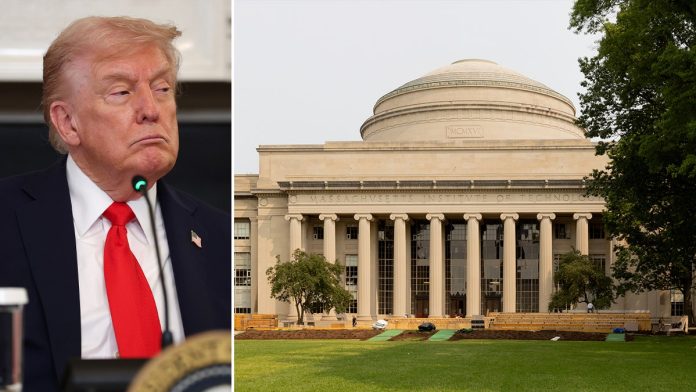
The Massachusetts Institute of Technology (MIT) has become the first U.S. university to formally reject a federal funding offer from the White House after refusing to align with President Donald Trump’s conservative education agenda, marking a major escalation in the growing standoff between American higher education and the Trump administration.
The proposal, sent to nine major universities earlier in October, demanded that institutions stop considering race, gender, ethnicity, or similar factors in admissions and hiring if they wished to continue receiving federal research and education funding. It also required universities to ensure their campuses were “friendly to conservative ideas.”
In a strongly worded letter to U.S. Education Secretary Linda McMahon, MIT President Sally Kornbluth said the institute “cannot in good conscience” accept the terms of the proposal.
“The government’s document includes principles with which we disagree, including those that would restrict freedom of expression and our independence as an institution,” Kornbluth wrote.
She continued “Fundamentally, the premise of the document is inconsistent with our core belief that scientific funding should be based on scientific merit alone.”
The rejected offer, according to White House documents, would have required universities to “transform or abolish institutional units that purposefully punish, belittle, or spark violence against conservative ideas.”
In addition to MIT, the letter was also sent to the University of Arizona, University of Pennsylvania, University of Southern California, University of Texas, University of Virginia, Brown University, Dartmouth College, and Vanderbilt University. None of the other eight institutions have yet responded, with replies expected by October 20.
President Trump’s administration has waged an aggressive campaign against elite U.S. universities, accusing them of liberal bias, censorship, and anti-conservative discrimination. Federal officials have warned that schools refusing to “restore ideological balance” risk losing billions in public research grants.
Trump’s broader push has included legal and financial pressure on universities such as Harvard and Columbia. In one high-profile clash, Trump’s Department of Education froze $2.6 billion in federal funds for Harvard, citing alleged antisemitism and ideological bias. However, a Boston judge later ruled the freeze unlawful, saying the administration had “used antisemitism as a smokescreen for a targeted, ideologically motivated assault on this country’s premier universities.”
MIT’s firm refusal now positions it as the first elite institution to publicly defy the White House’s education directive. Kornbluth noted that while MIT already meets “many standards outlined in the government’s document,” the university will “not compromise academic independence or freedom of inquiry.”
The Trump administration’s campaign has seen mixed results, with some universities, such as Columbia, reportedly agreeing to new restrictions on diversity policies in exchange for continued federal support. Columbia recently agreed to pay $200 million and pledged to end race-based considerations in admissions and hiring, while the University of Pennsylvania announced it would ban transgender women from women’s sports after similar negotiations.



